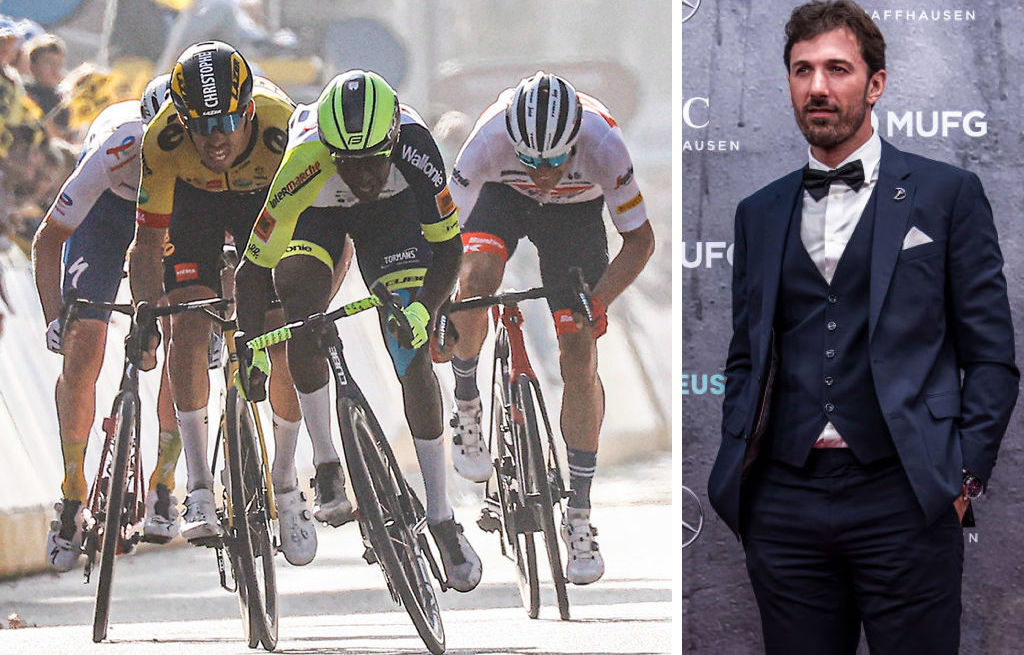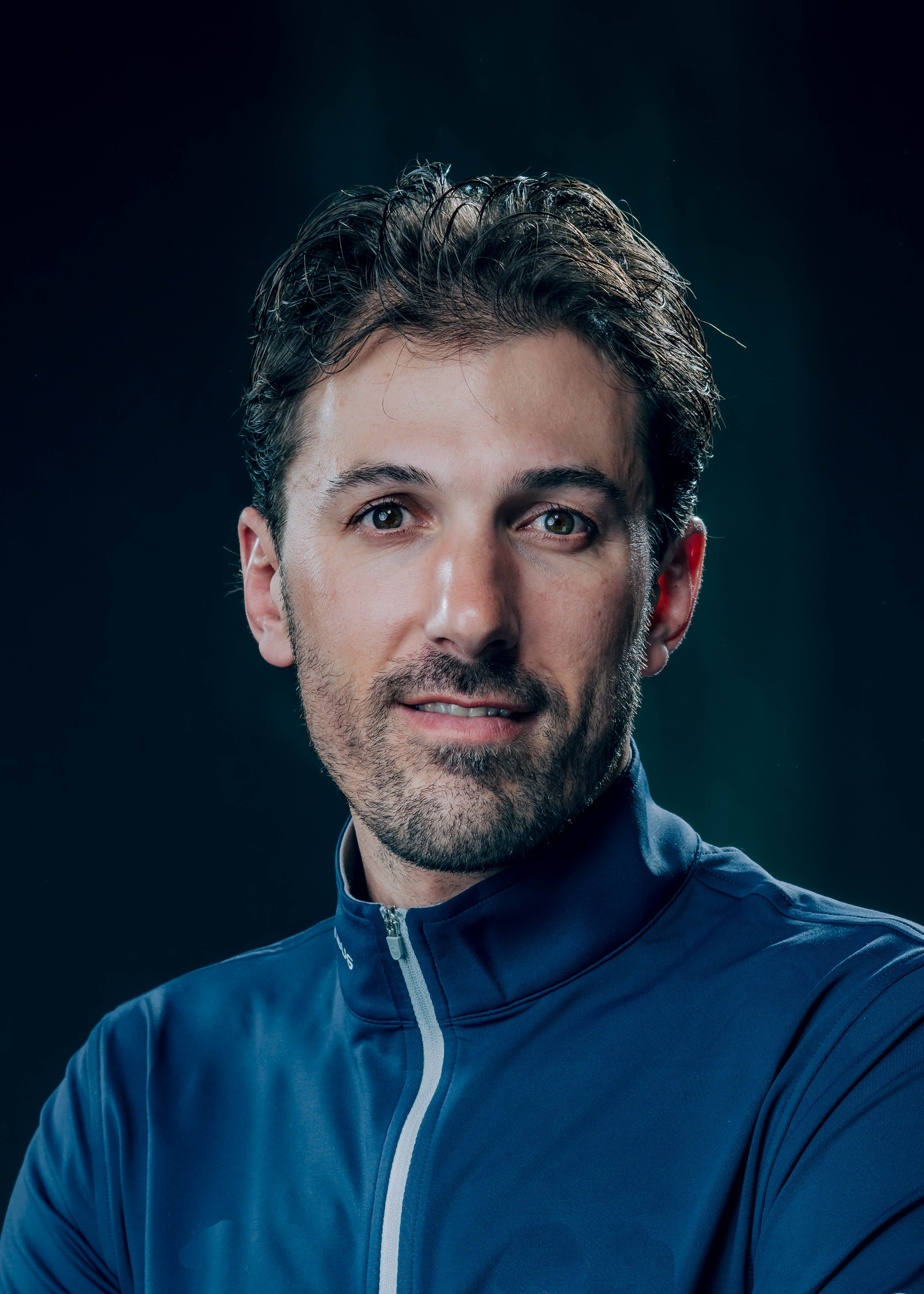Cancellara's Classics Column: Surprised but not surprised by Girmay
Fabian Cancellara gives his verdict on Biniam Girmay’s stunning Gent-Wevelgem performance, plus Wout van Aert and the build-up to Flanders

When Biniam Girmay crossed the line first on Sunday after winning Gent-Wevelgem, I was surprised, but also not surprised.
On the one hand, he stunned not only the cycling world, but the whole history of the sport. This is a huge moment for African cycling and a huge moment in our sport.
Professional cycling has its roots in Europe, but over time it has become more and more globalised. We’ve had the Americans, the British, and the Australians, and more recently the rise of the South Americans. But what we haven’t really had are a lot of top-level riders from Asia or Africa.
Fumiyuki Beppu is an example from Japan, and various Africans have made it to the WorldTour in recent years. But this is different.
Girmay is the first African rider who, as I see it, has put the hammer quite hard into our world of cycling in terms of enlarging our sport. With the World Championships coming up in Rwanda in 2025, it’s a nice sign.
These young guys don't think; they do
But why am I not surprised? Well, the sport is changing and this is just another example of how the young generation is ripping things up. We’ve seen it already from Pogacar and Bernal and riders born in the late 1990s, but now it’s the children of the 2000s. These guys, they don’t think; they just do.
So when Girmay opens up the sprint from the back with 250 metres to go into a headwind against more experienced riders, you’re sort of not surprised.
Get The Leadout Newsletter
The latest race content, interviews, features, reviews and expert buying guides, direct to your inbox!
Besides, I was already surprised on Friday. E3 was the Jumbo-Visma show, but take them out of it and the rider of the day was clearly Girmay. He was the closest one to Van Aert and Laporte on the Paterberg, and that says it all. E3 is the hardest Classic outside Flanders and Roubaix, so to go there and do that on your debut, you can’t bluff it. It’s pure talent.
At Gent-Wevelgem he combined his talent with race craft. He spotted the right move in the final, which was the most important thing. Van Aert had attacked a few kilometres before, but that was too obvious. Then Laporte went next, and it was like Girmay was waiting for it.
He read that move, then he did all his turns, and then he opened the sprint, and then he won it. It was a classy demonstration. He’s a deserving winner and I’m super happy for him.
The way he’s racing - not just this week but even the past two seasons - it’s clear he’s getting better and better with every race. As for his direction and his full potential, it’s still too early to say. But if you can win Gent-Wevelgem at 21 on your debut, then it’s not just that you can be a superstar - you are already a superstar.
From Gent-Wevelgem to Flanders
Gent-Wevelgem is a strange race. I never had a good experience there as a rider and I’m not sure why. I was always either tired, or not going well, or not that focused. My focus was always just Harelbeke and Flanders. Gent-Wevelgem, for me, was more of a training race. Sometimes I stopped at the feed zone; sometimes I came home at the back; sometimes the weather was just too crazy; and sometimes I didn’t bother at all. It was a great race, but never the race for me.
In the past years it has changed a lot in terms of the parcours, the start location, the climbs, the gravel roads. It’s a Classics that’s sort of a non-Classic. It’s not in the real heart of Flanders. It’s over by the French border, up on the coast, and on mainly flat roads. It’s just a different vibe.
This edition was again a demonstration of the fact that cobbles can do a lot. They now ride the Kemmelberg three times, and the steep side that they do on the last ascent is really, really hard. Van Aert was by far the strongest there. It was either an attack or a pre-attack - or some may think he was testing his legs. But let’s be honest, he already knows they’re good.
Maybe Van Aert wasn’t that fresh, but the difficulties at Gent-Wevelgem are not difficult like they are at Flanders. At Flanders you’ll have the Oude Kwaremont and and Paterberg after nearly 250km. Can you imagine Van Aert doing what he did on the Kemmelberg, making a selection like that, and then doing it again on the Paterberg ? Then there’s an even bigger explosion, and he’s gone.
Even so, Girmay has proved the point I made in my previous column: Van Aert and Jumbo-Visma are beatable.
I think some other riders will gain confidence from that. Jumbo-Visma are still obviously stronger than the rest, but they do not carry that air of invisibility that comes with winning every race. That can give their opponents the last little morale boost for this all-important week.
At the end of my previous column I mentioned that Pogacar and Van der Poel are coming, and I’m extremely curious to see what happens at Dwars door Vlaanderen on Wednesday. I will reserve judgement for now, but what I will say is that if Van der Poel is on a start line then he’s riding to win. The same goes for Pogacar.
As I said, these young guys don’t think; they just do.
Van Aert will not be riding on Wednesday and it’ll be the same for some of the big favourites who raced on Friday and Sunday. It’s not a good idea to do all three races before Flanders. So the battle and the big showdown between Van Aert, Van der Poel, and Pogacar, will only happen on Sunday. Yet Wednesday will tell us what we need to know for the big day.
Fabian Cancellara is an ex-professional cyclist who raced from 2001 to 2016 for Mapei, Fassa Bortolo, CSC and Trek. One of a select trio of riders to have won Paris-Roubaix and the Tour of Flanders three times, alongside arch rival Tom Boonen and Johan Museeuw, he is the only racer who can add the Strade Bianche triple to that glittering statistic – first across the line in Siena at four year intervals between 2008 and 2016."Spartacus" was also a formidable time trialist: four times world champion, twice Olympic champion, his final race as a professional cyclist came in the TT at the Rio Olympics in 2016, where he triumphed over second-placed Tom Dumoulin by a staggering 47 seconds. Alongside various business interests – and being a Cyclingnews columnist, of course – Cancellara is a founder of the Tudor Pro Cycling team, currently racing at UCI Pro Team level.
